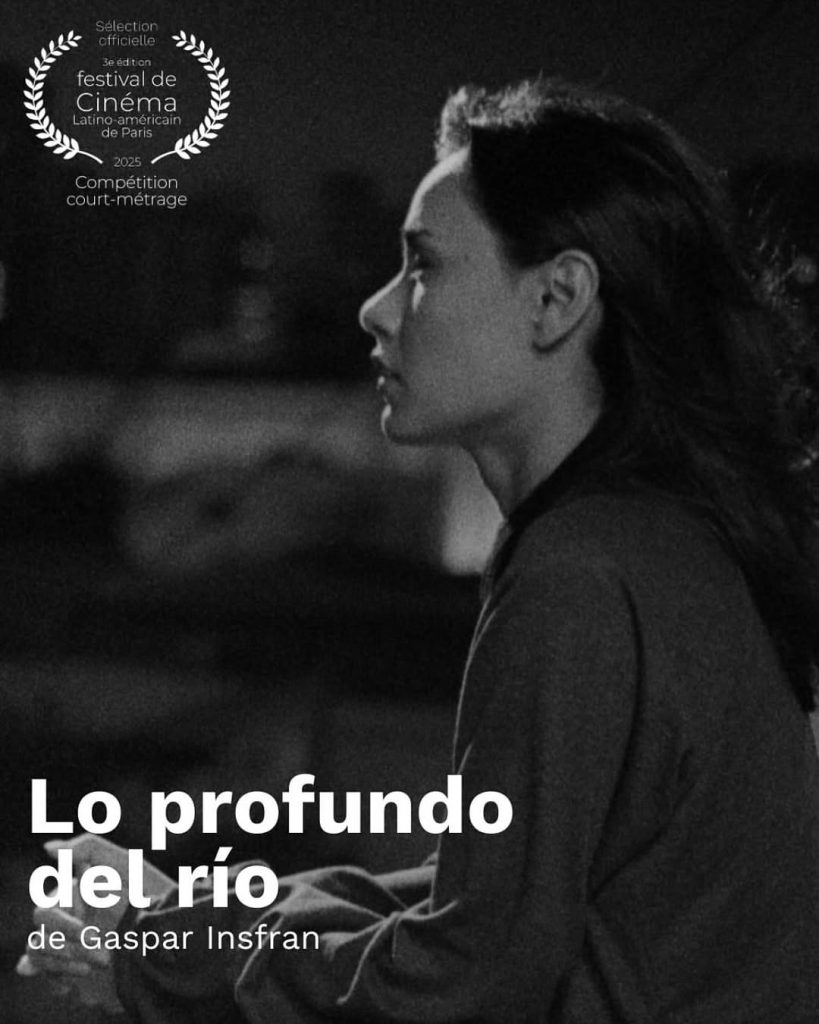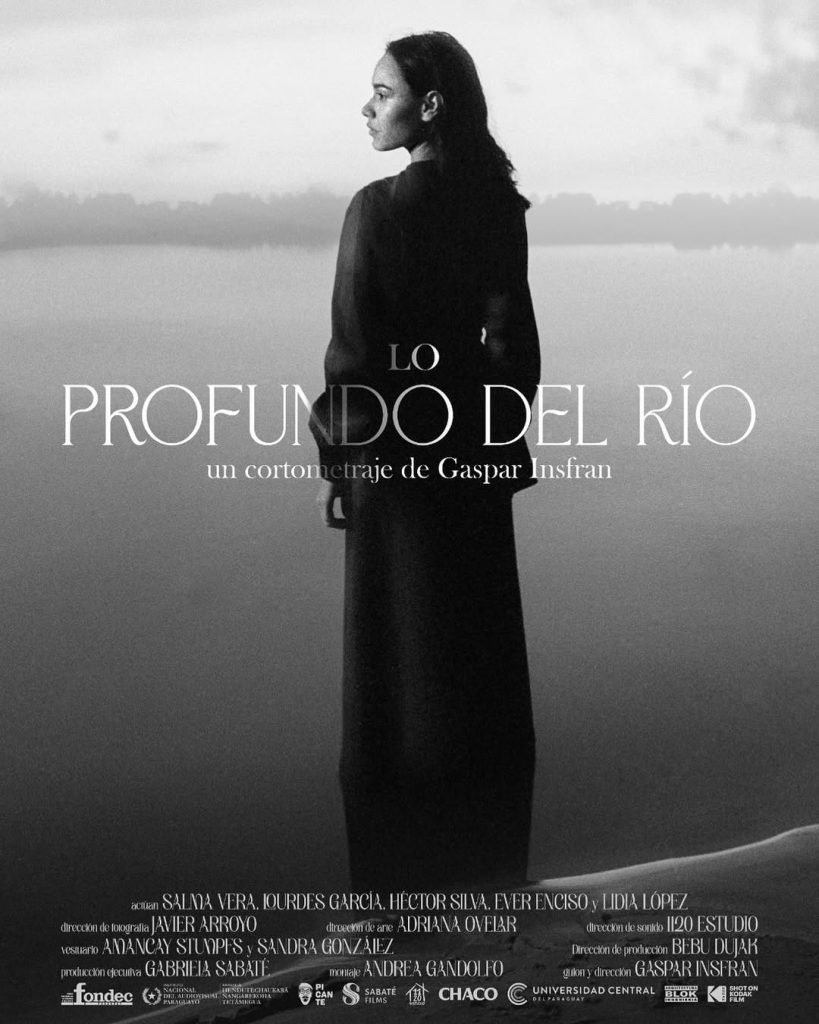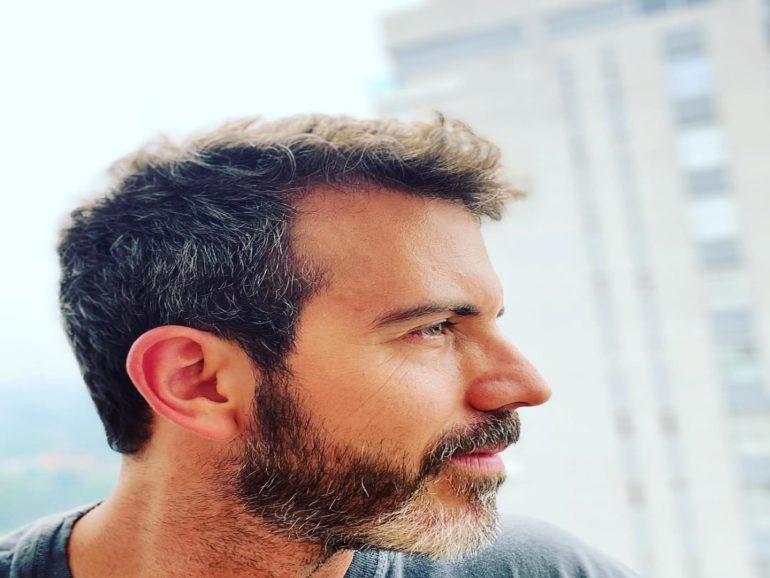Gaspar Insfrán, a Paraguayan filmmaker, believes that truly observing a place, a scene, or a person is nearly a revolutionary act in today’s world. “Perceiving life in the small details, transmitting that life through the shots, and the passage of time within them are elements that captivate me when I film,” he explains. This deep attention to detail and commitment to authenticity have been key to his journey as a filmmaker.
Gaspar Insfrán: Early Life and Artistic Influences
Born in Asunción on February 6, 1985, Gaspar had a happy childhood surrounded by family and friends. He mostly played with his cousins in the neighbourhoods of Luis Alberto de Herrera and Villa Morra. “I remember riding bikes all day long and playing with the neighbours,” he recalls. “That sense of community does not seem as prevalent today in Asunción, perhaps due to safety concerns and the increasing reliance on technology.” However, he holds dear the time spent with his grandparents, who profoundly influenced him. His maternal grandmother, Margot, was a poet, writer, and painter. Her artistic influence significantly shaped Gaspar’s perspective. He fondly remembers accompanying her in the studio, surrounded by art, which undoubtedly moulded his artistic vision.
The Sacred Ritual of Cinema
Gaspar’s interest in filmmaking grew out of his love for cinema. “Going to the movies has always been a sacred ritual for me,” he says. “The lights go down, and a group of people shares the same experience for a few hours. It’s almost like a liturgical event – stepping away from the invasive nature of technology and entering a dark space to witness a film.” Over time, this love for the medium deepened, and in 2021, after reading numerous books on cinema, he attended a workshop called El Dinosaurio with Paz Encina. This experience opened his eyes to a more personal and experimental form of filmmaking. He was particularly moved by David Lynch’s Blue Velvet, which inspired him to break away from conventional Hollywood cinema and explore unique styles and techniques.
Although Gaspar Insfrán did not formally study film, he earned a degree in social work from the University of Phoenix. His education came from reading books, watching movies, and learning from experienced filmmakers like Dave Walls, Paz Encina, and Marcelo Martinessi. “Sharing their knowledge with others is essential for the continuity of cinema across generations,” he says.
The Creation of El Rastro de la Nada
Gaspar’s first significant project, El Rastro de la Nada (The Trace of Nothing), explored themes of emptiness and solitude. Filmed on both Super 8 and digital formats, the film offered a deeply personal and experimental experience. “I have a special connection with film,” he shares. “Working with this format is difficult and uncertain, but it is also incredibly rewarding. The process itself brings focus to the entire crew, making the act of filmmaking almost magical.” The film’s reception was warm, both domestically and internationally, and it was showcased at prestigious experimental film festivals like the Dobra Festival in Rio de Janeiro and the VGIK International Student Film Festival in Russia. This recognition brought him immense joy, particularly as Andrei Tarkovsky, a major influence on his work, had studied at VGIK.
Gaspar Insfrán Personal Journey Behind Lo Profundo del Río
The process of creating Lo Profundo del Río (The Depths of the River) was deeply personal for Gaspar Insfrán, inspired by his experiences with grief and the death of loved ones. “In Western culture, we avoid talking about death until it touches us,” he observes. “It’s a taboo subject.” The film’s style is contemplative, surreal, and noir, with themes of death, mourning, and love. Gaspar’s own journey with meditation, which helped him cope with the loss of his grandmother, also plays a key role in the film’s development. “Meditation has been an important tool for me, allowing me to create more spontaneously and with greater introspection,” he shares.
While working on Lo Profundo del Río, Gaspar felt more confident but also more nervous, as the project was larger and more complex than his first short film. However, the reception to the film has been overwhelmingly positive. The short was recently selected for the CLaP Festival in Paris, further validating his approach to cinema. The film’s intimate and personal nature resonates with a select audience, often leaving a profound impact.



The Future of Paraguayan Cinema
In the future, Gaspar intends to work on a feature film that will explore the values and resilience of Paraguayan women. The script, co-written with his friend Sebastián Jiménez, is still in its early stages, and Gaspar is in no rush to complete it. “It will take several years, and that’s okay,” he says. Through his work, Gaspar Insfrán hopes to convey a message about the richness we carry within as human beings. He is passionate about exploring the inner world and how it affects our relationships with others and the world around us. “The spiritual dimension is vast and mysterious,” he reflects. “I am deeply excited to create from that space.” He ends with a quote by Sam Shepard: “The earth transmits a message. It exhales it. I capture it by inhaling.”
While Paraguay does not have the biggest scene for movies, it is still growing. From producing to watching, it is getting better in Paraguay and taking a more prominent place. Last year, there was a “Cinema Under the Sky of Asunción” held in the capital. It allowed locals to see short movies in an exterior setting. Major productions and actors are also coming to Paraguay to promote their films, such as the “Society of the Snow.“
You can follow Gaspar Insfrán’s work here on Instagram.
Made in special collaboration with @canaguayo.


